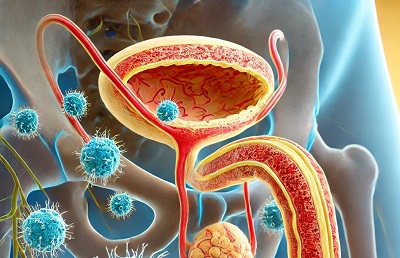Can Candida Cause Prostatitis?
Prostatitis, an inflammation of the prostate gland, is a condition that affects many men worldwide. The symptoms can be distressing, ranging from pelvic pain and discomfort to urinary issues and sexual dysfunction. While bacterial infections are the most well-known cause of prostatitis, recent research has started to explore the role of other potential culprits. One such potential cause is the fungal infection, Candida. But can Candida truly contribute to prostatitis?

What is Candida?
Candida is a type of fungus, most commonly Candida albicans, that naturally resides in small amounts in various parts of the body, including the mouth, digestive tract, and vaginal area. Under normal circumstances, the body’s immune system and a balanced microbial environment keep Candida in check. However, when the body’s defenses are weakened or disrupted, Candida can overgrow, leading to infections such as thrush or yeast infections.
Prostatitis: An Overview
Prostatitis is a condition that involves inflammation of the prostate gland, which can result in symptoms such as pain in the pelvic region, difficulty urinating, and discomfort during or after ejaculation. There are several types of prostatitis, including bacterial, non-bacterial, and chronic prostatitis. While bacterial infections are commonly associated with prostatitis, the exact cause is often unclear in many cases.
Can Candida Contribute to Prostatitis?
Although Candida infections are generally associated with areas like the skin, mouth, and genital region, research has suggested that fungal infections, including Candida, may play a role in prostatitis, especially in cases where conventional bacterial treatments fail.
1. Candida and Immune System Suppression
An overgrowth of Candida can occur when the body’s immune system is weakened. Conditions such as diabetes, stress, prolonged use of antibiotics, or other factors that compromise immune function can allow Candida to proliferate. This fungal overgrowth can then spread to the prostate, causing inflammation and symptoms similar to those seen in bacterial prostatitis.
2. Candida in the Urinary Tract
Candida can also be present in the urinary tract. While less common, a Candida infection can affect the urinary system and extend to the prostate, leading to prostatitis-like symptoms. This is particularly true for men who have had recurrent yeast infections or those with compromised immune systems.
3. Antibiotic Overuse and Candida Overgrowth
One of the significant contributors to Candida infections is the overuse of antibiotics. Antibiotics, while effective at treating bacterial infections, can also disrupt the balance of good bacteria in the body, allowing Candida to overgrow. In men with recurrent or chronic prostatitis, this imbalance might contribute to persistent symptoms, even after bacterial infections have been treated.
Symptoms of Candida-Induced Prostatitis
The symptoms of Candida-related prostatitis can overlap with those of bacterial prostatitis, making diagnosis more challenging. Common symptoms may include:
- Painful urination or a burning sensation
- Lower abdominal or pelvic pain
- Painful ejaculation
- Frequent urination or urinary urgency
- Fatigue and malaise
- Unexplained sexual dysfunction
How to Treat Candida-Induced Prostatitis
Treating Candida-induced prostatitis involves addressing both the fungal infection and any underlying factors that may have contributed to Candida overgrowth. Common treatment options include:
- Antifungal Medications: Oral or topical antifungal medications are prescribed to target and reduce Candida overgrowth.
- Probiotics: Restoring the balance of beneficial bacteria in the body can help prevent Candida overgrowth. Probiotic supplements can be beneficial in re-establishing a healthy gut flora.
- Dietary Changes: A diet low in sugar and refined carbohydrates can help reduce the growth of Candida, as these foods are known to feed the fungus. Anti-inflammatory foods, including those rich in omega-3 fatty acids, can also support prostate health.
- Addressing Underlying Conditions: Managing underlying health issues such as diabetes, stress, or immune deficiencies can help reduce the risk of Candida overgrowth.
Conclusion
While Candida is not a primary cause of prostatitis, it may contribute to the condition, particularly in cases where the immune system is compromised or antibiotics have been overused. If you suspect that Candida may be causing or exacerbating your prostatitis symptoms, it’s crucial to consult with a healthcare provider. A comprehensive treatment approach that addresses the fungal infection and supports overall prostate health can help relieve symptoms and restore balance.
By understanding the link between Candida and prostatitis, men can take proactive steps in managing their health and preventing recurrent infections. If you’re struggling with prostatitis and suspect a fungal infection, talk to your doctor about possible treatment options tailored to your needs.
You may also be interested in:
Which is better for prostatitis candida, antibiotics or herbal therapy?
What Are the Differences Between Mild and Severe Prostatitis?



